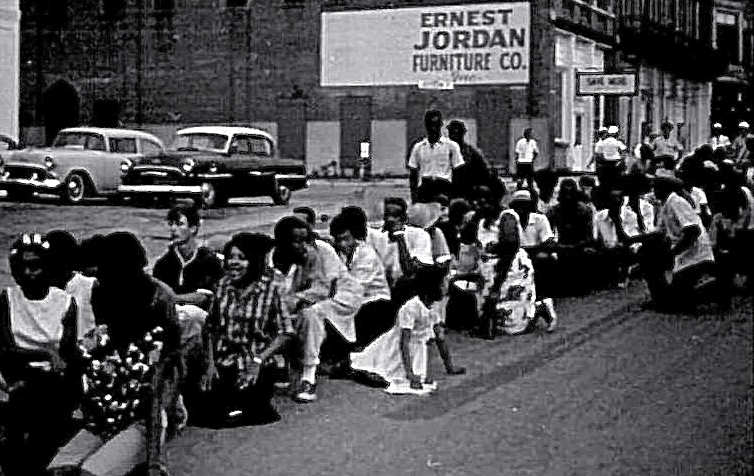When I was working on “The Class of ’65,” I adhered to the agreeable weather school of historical research. I tried to visit Americus and Koinonia when it wasn’t so hot and sticky and gnatty in southwest Georgia. That was the best time to go to West Virginia to see the focus of my story, Greg Wittkamper. Until this past weekend, I had never been to the state during the dead of winter.
Then they invited me to be the keynote speaker at the King Day program in Lewisburg. W.Va., a beautiful community near the Greenbrier Resort that bills itself as “the coolest small town in America.” Cool: as in charming and bohemian, not as in single-digit temperatures.
King Day 2016 began, as King Days must, with a walk from a courthouse to a church. It was 9 degrees, with patchy snow and ice from a storm the night before (which is why Greg and I are dressed like Eskimos in the photo). Considering the frigid conditions, a respectable crowd of a couple of hundred made the trek, which was rewarded with bowls of chili and cups of hot chocolate at Lewisburg United Methodist Church.
The service afterwards was multifaceted, to say the least, with hymns, a dance recital, student essay readings, a drum corps and a soaring rendition of “Take My Hand, Precious Lord” by a local pastor, Kathie Holland, who pointed out that Mahalia Jackson had performed the song at King’s funeral in 1968.
And then it was my turn. I told the assembly a little about what it had been like to cover the first King Day celebration 30 years ago this month in Atlanta, where I was a reporter for the Journal-Constitution. How no one knew quite what to make of the new holiday, which was marked with a parade and marching bands like it was a wintertime version of July the Fourth.
Most of my talk centered on the connections between Koinonia and the civil rights movement, both of which were terrorized for their commitment to brotherhood. At the same time King and participants in the Montgomery Bus Boycott were being targeted in Alabama, Koinonia was being boycotted, bombed and shot at in Georgia. I read from a letter King sent to Clarence Jordan as the two Baptist ministers were commiserating over what their people had to endure because of their beliefs: “You and the Koinonia Community have been in my prayers continually for the last several months. The injustices and indignities that you are now confronting certainly leave you in trying moments. I hope, however, that you will gain consolation from the fact that in your struggle for freedom and a true Christian community you have cosmic companionship.”
I also spoke of the civil rights movement in Albany and Americus, about Koinonia’s support for it and the involvement of the farm’s young people. Greg attended a good many of the mass meetings at black churches in both cities and took part in several marches. I love the photo below showing Greg in a column of protesters in Americus; he's the only white face in the crowd, near the left. Those Koinonia kids certainly stood out. But Greg was no braver than the others stretched out along the street that day in July 1965.


